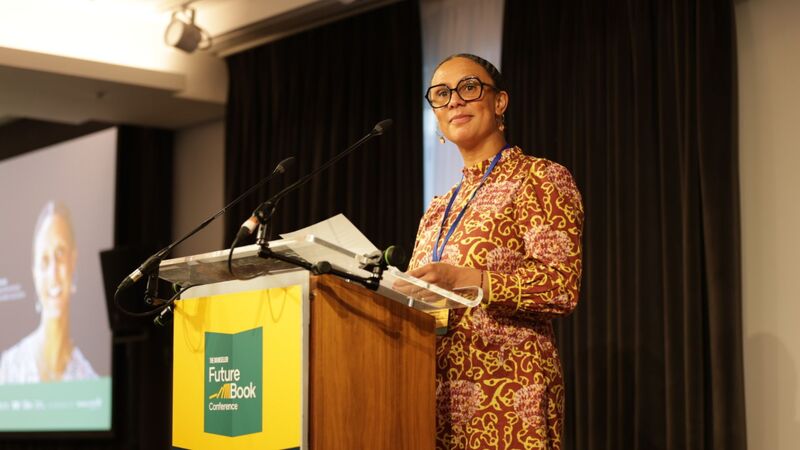You are viewing your 1 free article this month. Login to read more articles.
Covid had 'lasting legacy' on indie web development
Pickled Pepper Books’ Steven Pryse has said the challenges of bookselling through the pandemic accelerated many independent booksellers’ website development.
The owner of the independent bookshop in North London explored the challenges of bookselling in lockdown for The Bookseller’s Children’s Conference on Monday (20th September). He also highlighted the need for business rates reform and warned about supply chain issues.
He explained how booksellers rose to the challenge over lockdown. “[While] the retail sector was ordered to close its doors to the public, with books in greater demand than perhaps ever before as a result of the lockdown, it was never going to be quite that simple. Bookshops and booksellers took the opportunity to show their creativity and resilience, reinventing themselves to meet the demands of a public desperate for books, whether for home-schooling or much-needed personal escape.
“For many, including ourselves, it meant book fairies delivering much-needed supplies to the doorsteps of awestruck toddlers, cobbling together click-and-collect times and frankly anything which would deliver the right books at the right time."
Pryse, who is also chair of the Bookseller Association's Children’s Bookselling Group, stressed how the crisis of Covid-19 had acted as a catalyst for website functionality for many indies. “It also finally meant having the exodus for fully functioning websites. I’m sure we weren’t alone in this. The website development I feel is one of the lasting legacies from this period as independents finally gained the ability to not only match but actually surpass behemoth retailers. The launch of Bookshop.org also couldn’t have been better timed, providing valuable sales as well as vital publicity for independent bookshops, especially those that didn’t have resources for their own websites.”
Pryse explored the more permanent changes in book retail since Covid-19. “For many of us, we got used to not having to work seven days a week and being able to shut up the shop in time to pick up the kids from school or do other things. For many of us, it’s meant we’ve made longer-term changes to the way we work - employing more staff, reducing opening hours and generally seeking a better work-life balance.”
He praised the furlough scheme and support from publishers in helping many businesses to continue through the crisis. He said: “While no business has had an easy time by any stretch of the imagination, financial support throughout the lockdowns from government has allowed most of us to reopen in recent months while generous discounts from publishers has enabled us to invest in new stock,” he told delegates. Additionally, a Kickstarter scheme also enabled Pickled Pepper to expand its team, offering employment to young people starting careers in bookselling.
Of new challenges, Pryse considered the long-term shift in shopping habits: “The advent of the pandemic has hugely accelerated the pace of how our high streets, towns and city centres are all changing. Unwieldy chains saddled with huge debts have led to reduced employment opportunities in retail, desolate shop fronts and fewer reasons to visit your town centre. Initiatives such as the Culture Palace in Enfield, which we’re involved with, is just one example of how empty shops can be repurposed and new, much-needed interactive life and activity bought back to our town centres.”
Pryse was particularly concerned about a lack of flexibility with business rates, which, he said, threatened the sustainability and creativity of indies. “Sustained economic recovery is a distant dream at this point in time,” he said.
He also cited the instability in the supply chain as prices rise and he urged government intervention. Long-running issues in the industry over the last few months - a shortage of pulp and HGV drivers along with sea freight and container shortages - had also caused increases in costs.
Post-pandemic, many customers were seeking events rather than just products, a situation booksellers should be mindful of, Pryse continued. “In the short term we’re seeing a dip in retail spending as people are no longer seeking the solace of books so much and are making up for lost time in taking part in activities, which is why it’s so important for all of us to offer more than just a product,” he said.
Climate change was also changing books retail, he said. “Combined with a shift towards reduced consumption in regards to the climate crisis, increasing number of environmentally sustainably produced books rather than just books about the environment is one important step too and one we hope to see continue.”

















